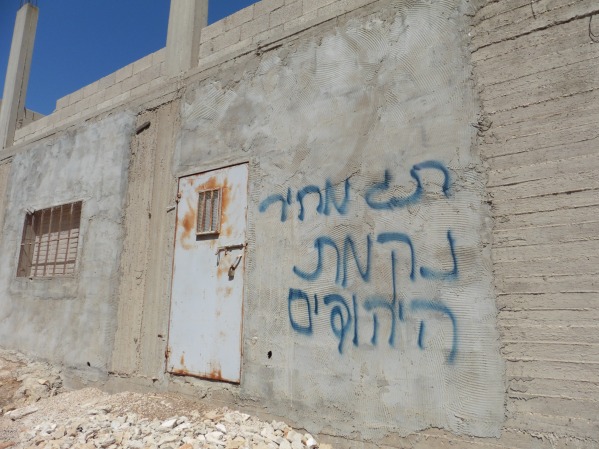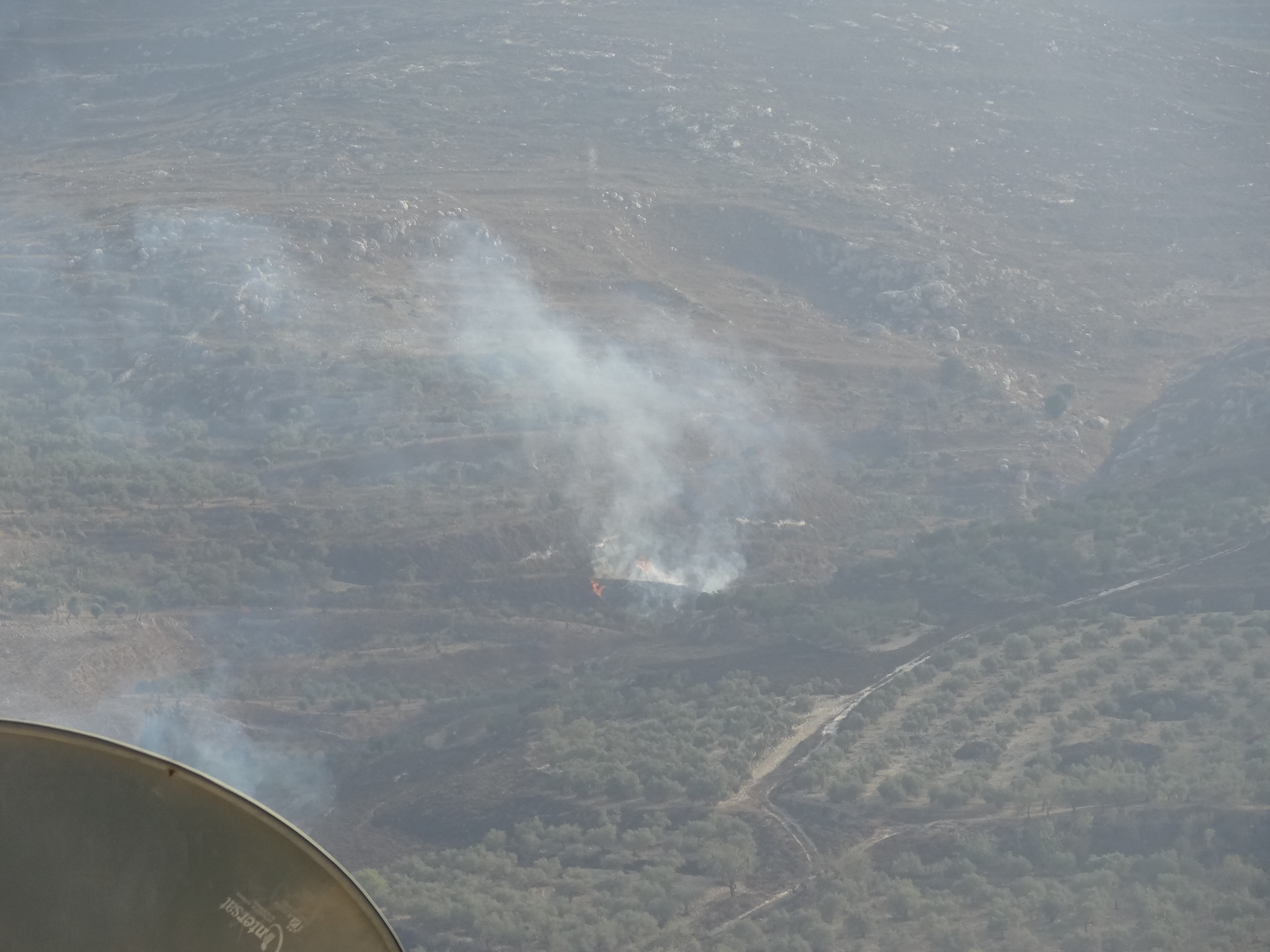Tag: Vandalism
-
Price tag attack in Aqraba, farmer’s house attacked
2nd July 2014 | International Solidarity Movement, Nablus team | Aqraba, Occupied Palestine Fadi Bassem is a farmer who lives in the village of Aqraba, 20 km south of Nablus, in the northern half of the West Bank. He lives with his extended family, 15 people in a single house. At 03:30 in the early hours of…
-
“No-one can explain to me why”
22 May 2012 | International Solidarity Movement, Nablus Team | Kafr Qalil, Occupied Palestine The Israeli army invaded seven family homes in the village of Kafr Qalil, south of Nablus, between 1am and 2am on 20th May. They trashed the properties and people’s possessions and stayed in them for several hours apiece. Lastly, they arrested…
-
Settlers set Palestinian land ablaze in village of Burin
By Alex Marley 15 September 2012 | International Solidarity Movement, West Bank In the afternoon of Tuesday, 11 September 2012, settlers from the illegal Israeli settlement of Yitzhar burned farmers’ land containing almond trees in the Palestinian village of Burin. Around 10 settlers came down from the nearby settlement of Yitzhar and started to burn…


